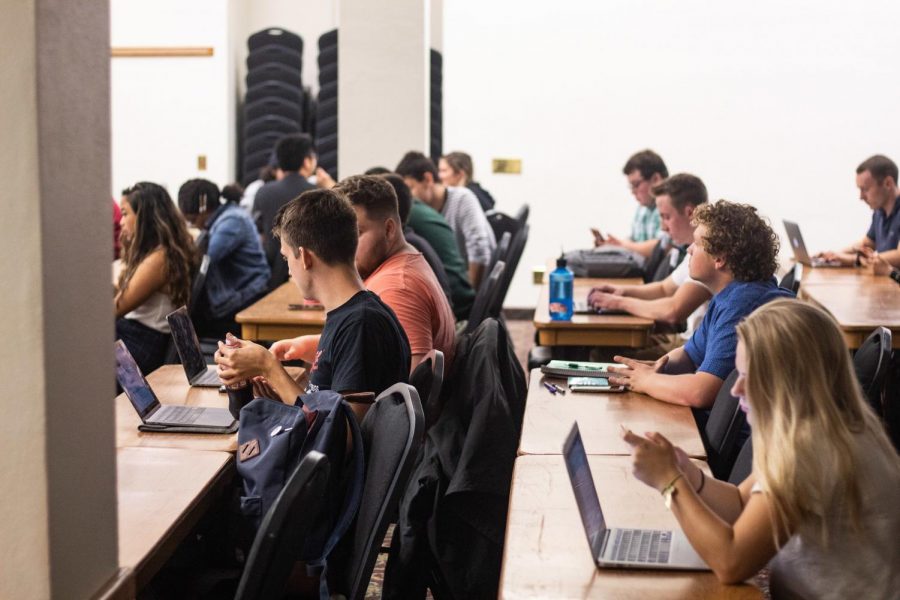The Student Government Association at the University of Massachusetts is a majority white group, and has struggled to diversify their organization. According to one former member, BIPoC students do not always feel comfortable in the organization.
Jennie Chang, a sophomore social thought and political economy and legal studies major, joined the SGA senate as a representative for the class of 2023 last academic year. She has since left the position. Chang said that SGA does not accurately represent BIPoC students at UMass. “I think SGA doesn’t represent the campus demographics,” she said.
Chang also went on to speak about the environment within the SGA: “Whenever BIPoC students would speak about their experiences, they would care . . . but not necessarily understand.”
She also expressed that the needs of BIPoC students were not a priority for the SGA during her time as a senator. “When I joined was around the time of the impeachment of the previous president . . . I know there were other motions that were, at least in my eyes, more important,” she said. “The native tribes I know had a motion around that time and it all had to be pushed back because of the impeachment, which I just saw as like, personal resentment manifesting for the next six hours of my life.”
Chang went on to speak about her personal experiences. “When I was sworn in everyone seemed nice enough . . . but I just never felt like a part of SGA.”
Carla Montilla, the secretary of diversity, joined the organization to help remedy these issues.
“Last academic year when I joined SGA it was my goal to make it more diverse . . . so I’ve been working on that for about a year now,” Montilla said.
Montilla has struggled to get more representation for BIPoC students, in part because of the lack of students of color in the SGA: “It has been very difficult because SGA is a predominantly white organization . . . it’s really hard for white students to completely understand this issue,” she said. “So when we bring up these issues, white students in the SGA sometimes make insensitive comments without meaning to… It definitely makes it a more unwelcoming space for students of color when you see your peers not understanding the issues you face.”
Montilla has been working to better represent BIPoC students in terms of the SGA’s agenda. She works to bring issues to the SGA that specifically affect students of color “so they know SGA cares about them.”
Montilla hopes that her work within the SGA will help hold the administration accountable to making the campus as a whole safe and more inclusive for BIPoC students. “The only way to hold admin accountable and to push them to make policies that are anti-racist is to have an SGA that holds them accountable,” she said. “If we don’t have a diverse representation, that’s just not going to happen.”
Sonya Epstein, the deputy secretary of diversity, works with Montilla on these issues. Epstein says that the issue of the lack of diversity in the SGA has been getting more attention in recent months. “It’s starting to become a conversation even outside of the SGA,” they said. “People are saying, ‘we deserve a face within the SGA’. . . from what I’ve seen it’s popping up in various groups a lot more.”
Epstein hopes to see the culture of the SGA change in the coming years. “I think that it has to be a lot bigger than just a push for a more diverse SGA,” they said. “I think that myself and other white people in the organization have to do a lot more anti-racist work to create a culture that is more welcoming to people of color, so that there isn’t just a push to have BIPoC folks come into SGA and then be treated really unfairly, like they have in the past.”
Rachel Ellis, the SGA’s interim president, acknowledges the need for change within the organization. “I think it has been a long outstanding issue that we need a more diverse body,” she said. “You’ll look at the body and you’ll see that it’s mostly white… it’s time that our student government needs to reflect our student body.”
Sophia Gardner is an Assistant News Editor and can be reached at [email protected]. Follow her on Twitter @sophieegardnerr.




















